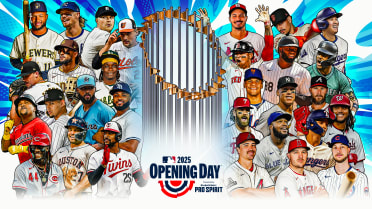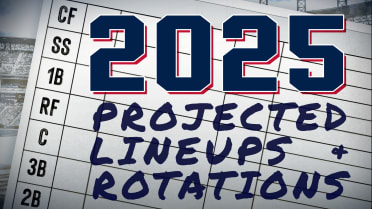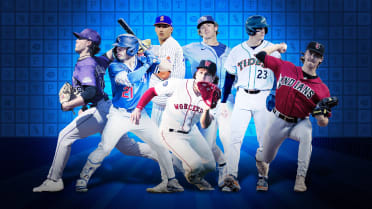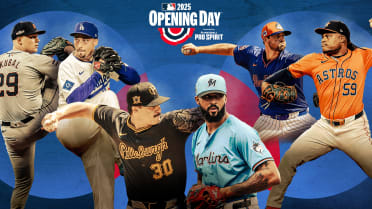ATLANTA -- After spending the past couple months searching for a big bat, the Braves opted to stick with Marcell Ozuna, who now has a chance to spend at least the next four seasons in Atlanta.
Many Braves fans had reason to be relieved on Friday night, when the club announced Ozuna will return with a four-year, $64 million deal that includes a club option for a fifth year at $16 million, along with a $1 million buyout.
Ozuna’s return erased some of the concern that was growing as Spring Training approached without the Braves having satisfied their need for another power hitter. The club evaluated the possibility of acquiring sluggers such as George Springer, Nolan Arenado and Joc Pederson.
But in the end, they found themselves back with Ozuna, who signed a one-year, $18 million contract to replace Josh Donaldson in Atlanta’s lineup last year. Now, after hitting a National League-best 18 homers and helping the Braves finish a win from reaching the World Series, the veteran outfielder is coming back at a lower cost.
Ozuna will draw an average salary of $16 million with this new deal. If he extends the success he had last year, he could prove to be one of this offseason’s most significant bargains. His willingness to return at this cost will give the Braves some flexibility as they address some remaining roster needs, like adding a backup catcher and possibly strengthening their bullpen.
Now that Ozuna has signed, the primary question is: How will his value be affected by the fact the Braves won’t have the option to use him as a designated hitter again this year?
Ozuna’s defensive limitations led to the Braves using him as an outfielder in just 21 games last year. The hope is that his offensive production will compensate for the defensive woes. But the challenge will prove to be a little more significant as Ozuna could find himself playing 140-plus games in left field this year.
While playing 129 games as the Cardinals' left fielder in 2019, Ozuna was graded with -8 outs above average. That ranked 123rd out of the 135 outfielders who had at least 100 attempts that year.
Still, the Braves were willing to gamble on Ozuna’s defense last year, long before it was known the pandemic would lead to the implantation of the universal DH.
With this latest deal, the Braves will need to gamble again on Ozuna’s glove again this year. But the expectation of the universal DH returning beyond 2021 gives the Braves reason to be comfortable with the role that could be filled during the final years of the contract.
Freddie Freeman expressed his excitement about the reunion via Twitter on Friday night. When Freeman was named the NL MVP in November, he made a point to say how much he benefited from having Ozuna bat behind him.
After joining the Braves last year, Ozuna showed he can still be one of the game’s top offensive threats, posting career bests in batting average (.338), on-base percentage (.431) and slugging percentage (.636).
Though he was used as an outfielder in 15 of the Braves’ first 32 games, Ozuna ended up spending a majority of his time as Atlanta’s DH.
Ozuna ranked third in the Majors with 179 weighted runs created plus. The only two players with higher marks were Juan Soto and Freeman.
If Ozuna would have maintained his pace over a 162-game season, he would have hit 48 homers and driven in 151 runs. Both of these numbers would have trumped the career-best totals he produced while hitting 37 homers and driving in 124 runs for the 2017 Marlins.
Providing further encouragement about Ozuna’s production was the fact that his average exit velocity (93 mph vs. 90.7 mph), hard-hit rate (54.4 percent vs. 45.4 percent) and barrel percentage (15.4 percent vs. 8.9 percent) were all higher last year than during that impressive 2017 season.
Supervising Club Reporter Mark Bowman has covered the Braves for MLB.com since 2001.




